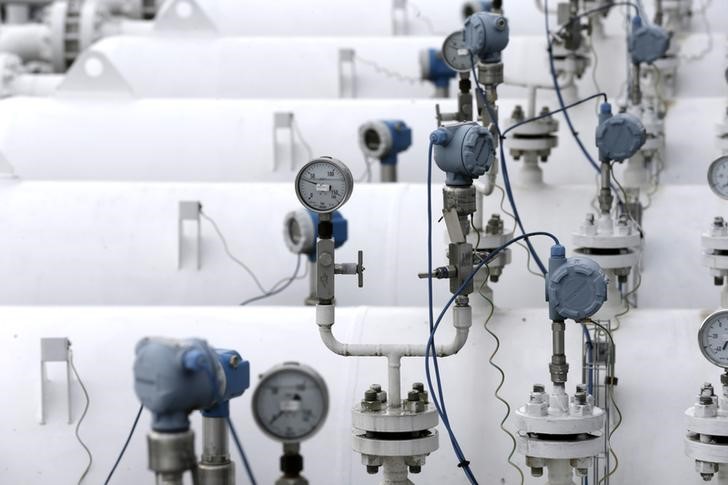© Reuters. FILE PHOTO: The headquarters of energy pipeline operator Enterprise Products Partners seen in Houston, Texas, U.S. September 27, 2020. REUTERS/Gary McWilliams/File Photo
By Arathy Somasekhar
HOUSTON (Reuters) – Energy pipeline operator Enterprise Products Partners (NYSE:) will expand its liquids (NGLs) operations, adding a pipeline from Texas’ Permian Basin, new plants to process natural gas, and converting an oil pipeline in Texas to NGLs, officials said on Tuesday.
The energy infrastructure provider has sharpened its focus on NGLs that are used to make plastics and gasoline on rising global demand and a boom in U.S. exports.
“We need NGL takeaway right now,” Executive Vice President Christian Nelly told analysts and investors on an earnings call.
The Houston-based company posted quarterly earnings of 60 cents per share, below analysts’ consensus estimates of 63 cents. Enterprise Products shares were down 0.8% at $26.22 at midday on Tuesday.
Enterprise will build a 550-mile (885 km) pipeline with the capacity to transport up to 600,000 barrels per day (bpd) of NGLs from West Texas shale fields to Houston. The pipeline, expected to be wholly owned by Enterprise, could begin operation in the first half of 2025, it said.
It also plans to build two natural gas processing plants and a fractionation unit to separate the various components of NGLs.
Enterprise has begun initial steps to convert in December the Seminole Pipeline, which carries up to 210,000 bpd of , to transport NGLs.
This pipeline, which had carried NGLs in past years, has been shipping crude oil since 2019. The company’s Midland-to-ECHO 2 pipeline, which moves crude oil from the Permian Basin of West Texas to Houston, was created by converting a segment of the Seminole pipeline.
The company said its deepwater oil-export project, Sea Port Oil Terminal, is likely to receive a license to begin construction by year-end.
The company said it expects 2024 capital investments for expansion projects between $3 billion and $3.5 billion, including the new projects, compared with estimates for $3 billion in spending this year.
Read the full article here

